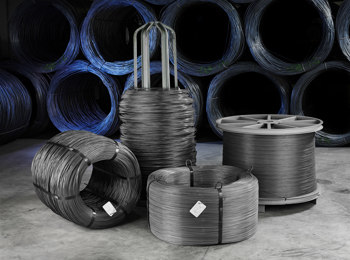10 月 . 05, 2024 15:28 Back to list
Best Quality Stones for Durable Gabion Basket Construction and Landscaping
High Quality Rocks for Gabion Baskets
Gabion baskets have become increasingly popular in construction and landscaping due to their versatility and natural aesthetic appeal. These wire cages, filled with rocks or stones, are used in a variety of applications, including erosion control, retaining walls, noise barriers, and decorative features. However, the effectiveness and longevity of gabion structures largely depend on the quality of the rocks used.
When selecting rocks for gabion baskets, several factors must be considered to ensure durability and functionality. First and foremost, the type of rock is crucial. High-quality rocks should be natural, durable, and able to withstand the elements. Common choices include granite, limestone, and basalt. These types of rocks are not only strong but also resistant to weathering and erosion, making them ideal for outdoor applications.
High Quality Rocks for Gabion Baskets
Limestone, a sedimentary rock, is another excellent choice for gabion baskets. It is widely available and generally easier to source than granite. Limestone is versatile; its natural beauty appeals to many landscaping designs. However, it is softer than granite and may be more susceptible to erosion over time. When using limestone, it's essential to monitor its condition and replace stones as needed to maintain the structure's stability.
high quality rocks for gabion baskets

Basalt, another igneous rock, is known for its dark color and dense structure. It is highly durable and often used in areas requiring heavy structural loads. The unique appearance of basalt gives gabion walls a modern look, making them popular in contemporary landscape architecture. The high density of basalt also means it can provide additional weight and stability to gabion structures, especially in locations where lateral forces, such as soil movement, are a concern.
In addition to the type of rock, the size and shape of the stones are also important. Ideally, the stones should be angular rather than rounded, as angular stones interlock better, providing increased stability and reducing the likelihood of voids in the structure. Typically, rocks between 4 to 12 inches in diameter are used for most gabion applications. This size ensures that the stones are substantial enough to withstand shifting and provide structural support while still allowing for sufficient drainage.
Finally, sourcing rocks from reputable suppliers is essential. High-quality materials that meet industry standards will not only extend the lifespan of the gabion structures but also enhance their visual appeal. Ensuring that the stones are free from debris and harmful chemicals is crucial for maintaining the integrity of the environment in which they are placed.
In conclusion, when constructing gabion baskets, the selection of high-quality rocks is paramount. Whether choosing granite, limestone, or basalt, it is essential to consider factors such as durability, size, and sourcing. By investing in quality materials, one can ensure that gabion structures will not only serve their intended purpose but also enhance the beauty and sustainability of the surrounding environment. Properly constructed gabion walls can withstand the test of time, providing both functionality and charm for years to come.
-
Why PVC Coated Gabion Mattress Is the Best Solution for Long-Term Erosion Control
NewsMay.23,2025
-
Gabion Wire Mesh: The Reinforced Solution for Modern Construction and Landscape Design
NewsMay.23,2025
-
Gabion Wall: The Flexible, Seismic-Resistant Solution for Modern Landscaping and Construction
NewsMay.23,2025
-
Gabion Wall Solutions: The Durable, Decorative, and Affordable Choice for Every Landscape
NewsMay.23,2025
-
Gabion Basket: The Durable and Flexible Alternative to Traditional Retaining Walls
NewsMay.23,2025
-
Gabion Basket: The Proven Solution for Slope Stability and Flood Control
NewsMay.23,2025
-
Versatility of Chain Link Fence Gabion
NewsMay.13,2025






